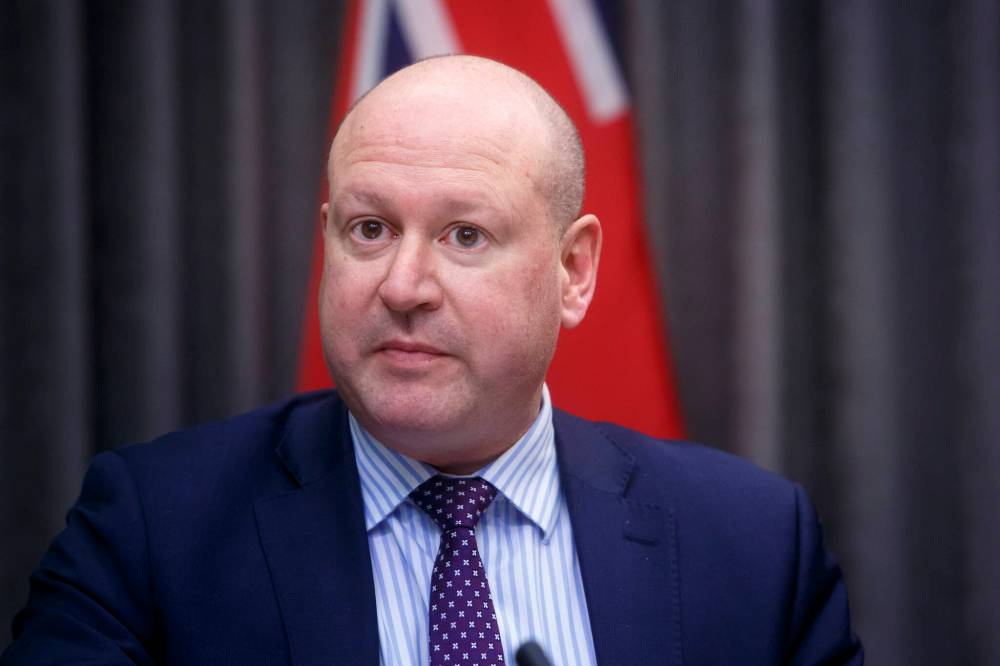Ottawa revamps COVID-19 reporting
Advertisement
Read this article for free:
or
Already have an account? Log in here »
To continue reading, please subscribe:
Monthly Digital Subscription
$1 per week for 24 weeks*
- Enjoy unlimited reading on winnipegfreepress.com
- Read the E-Edition, our digital replica newspaper
- Access News Break, our award-winning app
- Play interactive puzzles
*Billed as $4.00 plus GST every four weeks. After 24 weeks, price increases to the regular rate of $19.95 plus GST every four weeks. Offer available to new and qualified returning subscribers only. Cancel any time.
Monthly Digital Subscription
$4.99/week*
- Enjoy unlimited reading on winnipegfreepress.com
- Read the E-Edition, our digital replica newspaper
- Access News Break, our award-winning app
- Play interactive puzzles
*Billed as $19.95 plus GST every four weeks. Cancel any time.
To continue reading, please subscribe:
Add Free Press access to your Brandon Sun subscription for only an additional
$1 for the first 4 weeks*
*Your next subscription payment will increase by $1.00 and you will be charged $16.99 plus GST for four weeks. After four weeks, your payment will increase to $23.99 plus GST every four weeks.
Read unlimited articles for free today:
or
Already have an account? Log in here »
Hey there, time traveller!
This article was published 18/03/2022 (1409 days ago), so information in it may no longer be current.
OTTAWA plans to mirror Manitoba’s shift to reporting COVID-19 cases the same way information on influenza has been publicized for years.
Data on the most severe cases will be published weekly.
“Certainly we’re expecting to continue receiving, on a regular basis from the provinces and territories, hospitalization data and other severity indicators, including deaths,” said Dr. Howard Njoo, Canada’s deputy chief public health officer.

“It may not necessarily be a case of having to detect every single case, but maybe more towards what we’re doing for our flu surveillance,” Njoo said Thursday.
One day earlier, Manitoba’s chief public health officer said the province plans to issue regular updates on COVID-19 hospitalizations the way influenza is documented.
“We’ll still always have fairly good reporting numbers on those (with COVID-19) who are ill enough to be in hospital, much similar to influenza,” said Dr. Brent Roussin.
“We dramatically underreport how many people are infected with influenza, because not many people are tested. However, we have relatively good numbers for how many people with influenza require ICU admission or admission to hospital, because those are the people who will very likely be tested.”
Njoo said Ottawa has a network of hospitals across Canada that test a sample of patients for the novel coronavirus, just as they do for the flu.
Every flu season since 1996, the FluWatch program has issued weekly reports on the severity of infections, and the strains that are circulating in Canada based on a subsampling of cases that get genetically sequenced.
Njoo said a similar program for COVID-19 over the long term is under consideration.
“What we’re looking towards is… having a more of an integrated surveillance system. So it’s a number of different initiatives,” Njoo said.
For example, he said wastewater testing is being ramped up, from the current 60 per cent of municipalities to an anticipated 80 per cent. Njoo said testing sewage samples can help to detect spikes in COVID-19 cases early, as well as the emergence of variants.
Njoo added that Ottawa and the provinces can also study work and school absences as indicators of COVID-19.
Federal Health Minister Jean-Yves Duclos said it’s still up to provinces to decide how much data they publish, but he warned they must keep an eye on COVID-19.
“This epidemiological situation will keep changing with new variants and new waves. So (we have) fewer tools, using the traditional PCR molecular tests, but a continuing need to keep monitoring the situation.”
dylan.robertson@freepress.mb.ca

